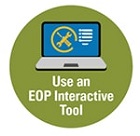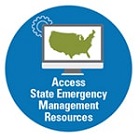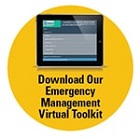|
Preventing the Aiding and Abetting of Adult Sexual Misconduct in K-12 Schools
Schools and school districts work every day to create safe, supportive learning environments and protect students from a range of threats and hazards, including the threat of adult sexual misconduct (ASM). ASM is defined as any sexual activity directed to a child with the purpose of developing a romantic or sexual relationship. ASM can include verbal conduct, physical conduct, or electronic interactions and can be perpetrated by any adult in the school community. Comprehensive school safety and emergency management planning should include the development of plans, policies, and procedures to protect students from the threat of ASM. Examples of ASM prevention strategies include developing precautionary hiring practices, conducting systematic background checks, ensuring the whole school community is well-trained on preventing and addressing ASM, and prohibiting the aiding and abetting of ASM.
Aiding and abetting in the context of ASM is the practice of K-12 employers enabling an individual with a known or suspected history of sexual misconduct against children to transfer schools or obtain new employment without facing consequences. This can happen in many ways, such as through letters of recommendation from former employers that omit information about incidents or allegations of ASM, inadequate hiring practices that don’t include searches on applicants’ certification status or eligibility for employment, and policies or agreements that allow for the suppression of information or the expungement of disciplinary records.
Federal Efforts to Prevent Aiding and Abetting
The Elementary and Secondary Education Act of 1965 (ESEA), as amended by the Every Student Succeeds Act, contains a provision (Section 8546) that requires states, state education agencies (SEAs), and local education agencies (LEAs) that receive ESEA funds to have in place laws, regulations, or policies that explicitly prohibit the aiding and abetting of ASM. Specifically, such policies must prohibit the SEA, LEA, or school (as well as any school employee, contractor, or agent) from providing a recommendation of employment for an individual that the SEA, LEA, or school knows or has probable cause to believe has engaged in sexual misconduct with a student or minor in violation of the law.
In 2022, the U.S. Department of Education directed the Study of State Policies to Prohibit Aiding and Abetting Adult Sexual Misconduct in Schools, which sought to understand how states have responded to Section 8546, including what sorts of laws and policies have been developed by states to prohibit the aiding and abetting of ASM in schools. The study, which culminated in a report and fact sheet, found that, among the 50 states and the District of Columbia, 19 states developed new or revised existing laws and policies in response to Section 8546. Examples of enacted state laws and policies to prohibit the aiding and abetting of ASM include requirements for prospective employers, job applicants, and current and former employers and prohibitions on information suppression about ASM.
REMS TA Center Resources
To prohibit the aiding and abetting of ASM, leaders at the school, district, and state level should collaborate with multidisciplinary planning teams to create policies that prohibit the aiding and abetting of ASM and comply with relevant legal requirements, including those set forth by Section 8546 of the ESEA. All faculty and staff should be well trained so that these established policies are understood and followed by all adults in the school community. To support planning teams with these efforts, the REMS TA Center offers several resources and trainings, including
Schools and school districts can protect their students from the threat of ASM by learning more about this important issue and utilizing available resources to collaboratively develop and implement policies and regulations that prohibit the aiding and abetting of ASM.
|









